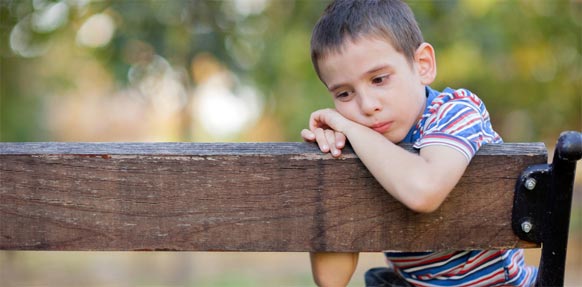
Good communication with children and teenagers
Interview: Good communication with children and teenagers
How an understanding relationship can look like to the relationship between children and adults The education expert Jan-Uwe Rogge shows in his lecture on September 17, 2019 in the pme Work-Life Academy in Frankfurt / Main. Read our interview.
Mr. Rogge, what often goes wrong in communication between parents and children? Is there a "classic"?
Jan-Uwe Rogge: One problem is that parents don’t communicate clearly. For example, they say "we" when they actually mean "I". In addition, parents say a lot that children cannot do with – they “babble around” and the children do not know what they are up to.
There is a rule of thumb: 66 percent of the communication is based on facial expressions and gestures, 33 percent on the sound of the voice – the rest is the content. And that is the reason why a smiling “No” does not go down well with children.
How do you listen to children properly?
I often hear exactly this question. But when it comes to listening, there is no "right" or "good". There is only active listening, which shows the other person: "I am with you, I allow myself to be with you, I am there for you and your arguments". The means also that I don’t throw answers to a child’s head when they tell something. An example: if children after the school When parents talk about fights with classmates, parents often immediately ask: "And did you fight back?" Or they give advice – but advice is also advice.
What to do if an argument threatens to escalate? Have a quick exit strategy for parents?
Yes, that’s the strategy of the time-out. For this purpose, children and parents agree on a code word such as "stop". As soon as this word is spoken, they diverge for a while. It is important that everyone involved can say the code word if they have the feeling: "There will be stress soon". Later everyone comes together to find a solution together.
How do parents stay in conversation with children who prefer to hide in their room?
It helps here if you have established communication rituals that are tied to certain situations right from the start. For example, eating together and having a conversation. I can only recommend parents to keep these rituals even when the older children are tired of them. And to convey to the children that they really care about that. Rituals are important in everyday life, regardless of whether they take place every day, every two days or once a week.
What do you think: is it okay to get loud sometimes? For example, when I have to say something for the hundredth time?
Getting loud is a sign that you missed the right time. That happens in everyday life. But when it did happen, I have to be the size to apologize.
Is there one tip that helps all parents – always??
Accept yourself as you are. Then you can accept your child as it is.

"Parents often say "we" when they actually mean "I""
Dr. Jan-Uwe Rogge, educational advisor
Expert lecture by Jan-Uwe Rogge – live and via stream
Experience Jan-Uwe Rogge live or in the livestream with his lecture "How you talk so that your child listens and how they listen so that your child talks". The lecture is free of charge for employees of our customer companies.
Live Lecture
17.09.19, 7 p.m. – 9 p.m.
Venue: Frankfurt
details & Registration: VA_44025
Live stream
17.09.19, 7 p.m. – 9 p.m.
Venue: virtual
details & Registration: VA_44024
RELATED ITEMS
-

Mental illnesses in children and adolescents
Depression in children and adolescents: The range of mental illnesses among young people is large – just like the number of people affected….
-

Dealing with violent children and adolescents
Violent Children and Adolescents | ©: frenzelll – Fotolia Most children are peaceful and, at most, use physical devices to protect themselves…
-

Diabetes in children and adolescents: signs and symptoms (2020)
With over a third of diabetes cases in the United States occurring in people over 65, diabetes is often considered to be age-related…
-

Mental disorders in children and adolescents: symptoms and warning signals
Warning signals for possibly existing illness 04/10/2015 by Dr. Christine Amrhein Mental illnesses are not common in children and adolescents…
